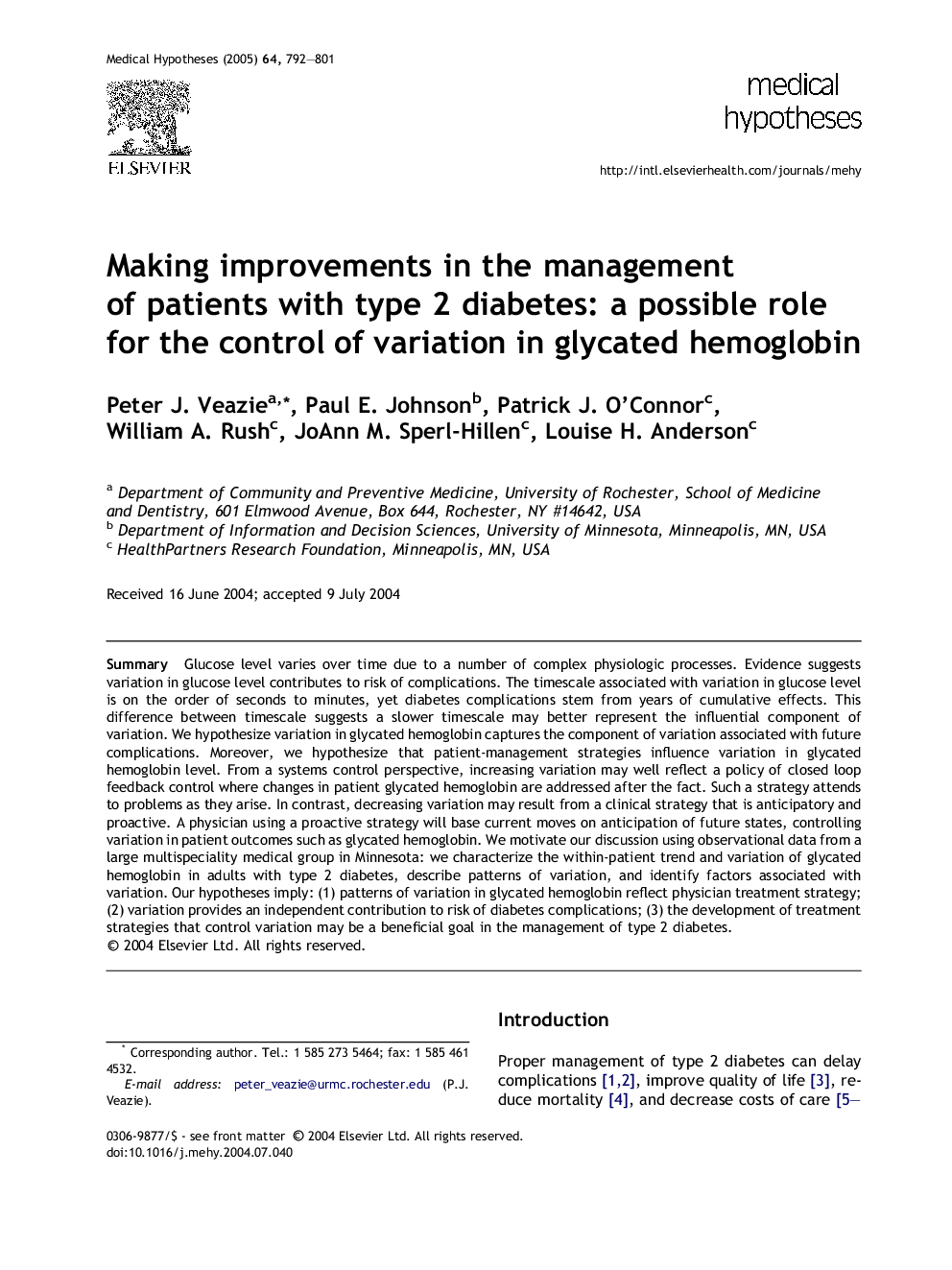| Article ID | Journal | Published Year | Pages | File Type |
|---|---|---|---|---|
| 8995801 | Medical Hypotheses | 2005 | 10 Pages |
Abstract
Glucose level varies over time due to a number of complex physiologic processes. Evidence suggests variation in glucose level contributes to risk of complications. The timescale associated with variation in glucose level is on the order of seconds to minutes, yet diabetes complications stem from years of cumulative effects. This difference between timescale suggests a slower timescale may better represent the influential component of variation. We hypothesize variation in glycated hemoglobin captures the component of variation associated with future complications. Moreover, we hypothesize that patient-management strategies influence variation in glycated hemoglobin level. From a systems control perspective, increasing variation may well reflect a policy of closed loop feedback control where changes in patient glycated hemoglobin are addressed after the fact. Such a strategy attends to problems as they arise. In contrast, decreasing variation may result from a clinical strategy that is anticipatory and proactive. A physician using a proactive strategy will base current moves on anticipation of future states, controlling variation in patient outcomes such as glycated hemoglobin. We motivate our discussion using observational data from a large multispeciality medical group in Minnesota: we characterize the within-patient trend and variation of glycated hemoglobin in adults with type 2 diabetes, describe patterns of variation, and identify factors associated with variation. Our hypotheses imply: (1) patterns of variation in glycated hemoglobin reflect physician treatment strategy; (2) variation provides an independent contribution to risk of diabetes complications; (3) the development of treatment strategies that control variation may be a beneficial goal in the management of type 2 diabetes.
Related Topics
Life Sciences
Biochemistry, Genetics and Molecular Biology
Developmental Biology
Authors
Peter J. Veazie, Paul E. Johnson, Patrick J. O'Connor, William A. Rush, JoAnn M. Sperl-Hillen, Louise H. Anderson,
